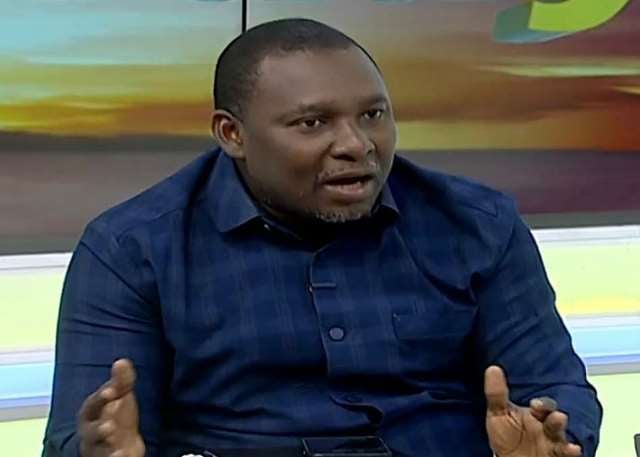The recent seizure of a Lamborghini Urus from the residence of popular Ghanaian dancehall musician, Shatta Wale, has ignited a debate on the necessity of institutionalizing lifestyle audits in Ghana. The Economic and Organized Crime Office (EOCO) confirmed that the vehicle is linked to a convicted Ghanaian fraudster serving time in the United States, highlighting the potential for ill-gotten gains to infiltrate even the most visible strata of society. This incident serves as a potent example of the need for increased scrutiny of unexplained wealth and the potential for its negative impact on society. Solomon Owusu, a leading member of the Movement for Change, has been a vocal advocate for lifestyle audits, arguing that they are a crucial tool in the fight against corruption and the pursuit of national transformation. He emphasizes that the flaunting of unexplained wealth, particularly by public figures, creates a distorted image of success and places undue pressure on young people, who may be misled into believing that material possessions are the sole measure of achievement.
The case of Shatta Wale’s Lamborghini brings into sharp focus the complexities of wealth acquisition and the challenges posed by the increasing visibility of opulent lifestyles, often amplified through social media. While the musician’s guilt or innocence remains to be determined, the incident underscores the need for greater transparency and accountability regarding the source of wealth, especially for those in the public eye. Owusu’s call for lifestyle audits is not simply a reaction to this specific incident, but rather a reflection of a broader concern about the societal implications of unchecked displays of wealth. He argues that the glorification of material possessions, often without a clear understanding of their origins, can create a culture of envy and unhealthy competition, ultimately undermining the moral fabric of society. The focus, he suggests, should shift towards valuing hard work, ethical conduct, and genuine achievement, rather than the mere accumulation of wealth.
The potential benefits of institutionalizing lifestyle audits are multifaceted. First, they can act as a deterrent to corruption and illicit financial activities by increasing the risk of detection. Knowing that their lifestyle choices are subject to scrutiny, individuals may be less inclined to engage in illegal practices to amass wealth. Second, lifestyle audits can aid in the recovery of stolen assets, as demonstrated by the seizure of the Lamborghini. By tracing the source of funds used to acquire extravagant items, authorities can identify and confiscate assets obtained through criminal activity. Third, the implementation of lifestyle audits can contribute to a more equitable society by ensuring that those who have benefited from illicit activities are held accountable and that their ill-gotten gains are returned to the public coffers.
However, the implementation of lifestyle audits also presents certain challenges. Concerns have been raised about the potential for abuse of power and the infringement of privacy rights. It is crucial to establish clear legal frameworks and safeguards to ensure that lifestyle audits are conducted in a fair and transparent manner, respecting the fundamental rights of individuals. Furthermore, the process must be efficient and effective, avoiding unnecessary bureaucracy and delays. The focus should be on targeting individuals suspected of engaging in illicit activities, rather than conducting indiscriminate investigations that could undermine public trust. A carefully designed and implemented system of lifestyle audits can be a valuable tool in promoting transparency and accountability, but it must be balanced against the need to protect individual rights and freedoms.
Owusu’s concerns extend beyond the realm of public figures to the broader societal impact of flaunting wealth on social media. He points to the trend of young people, particularly women, posting pictures with luxury items they do not own, creating a false impression of their financial status. This, he argues, puts undue pressure on others who may not have the means to acquire such items, leading to feelings of inadequacy and anxiety. The constant bombardment of images showcasing lavish lifestyles can contribute to a culture of materialism and consumerism, where self-worth is measured by possessions rather than character or accomplishments. This phenomenon underscores the need for media literacy and critical thinking skills, enabling individuals to discern between reality and carefully curated online personas.
In conclusion, the seizure of Shatta Wale’s Lamborghini has served as a catalyst for a much-needed discussion about wealth, accountability, and the role of lifestyle audits in promoting a more just and equitable society. While the implementation of such audits requires careful consideration and robust safeguards, their potential benefits in deterring corruption, recovering stolen assets, and fostering a culture of transparency cannot be overlooked. Furthermore, addressing the societal pressures created by the flaunting of wealth, particularly online, is essential for promoting a healthier and more balanced perspective on success and achievement. By fostering a culture of accountability and promoting ethical values, Ghana can strive towards a future where prosperity is shared and the pursuit of wealth does not come at the expense of integrity and social harmony.


